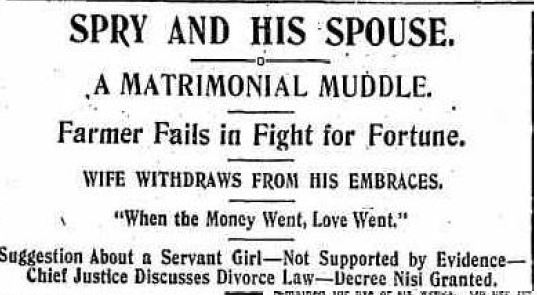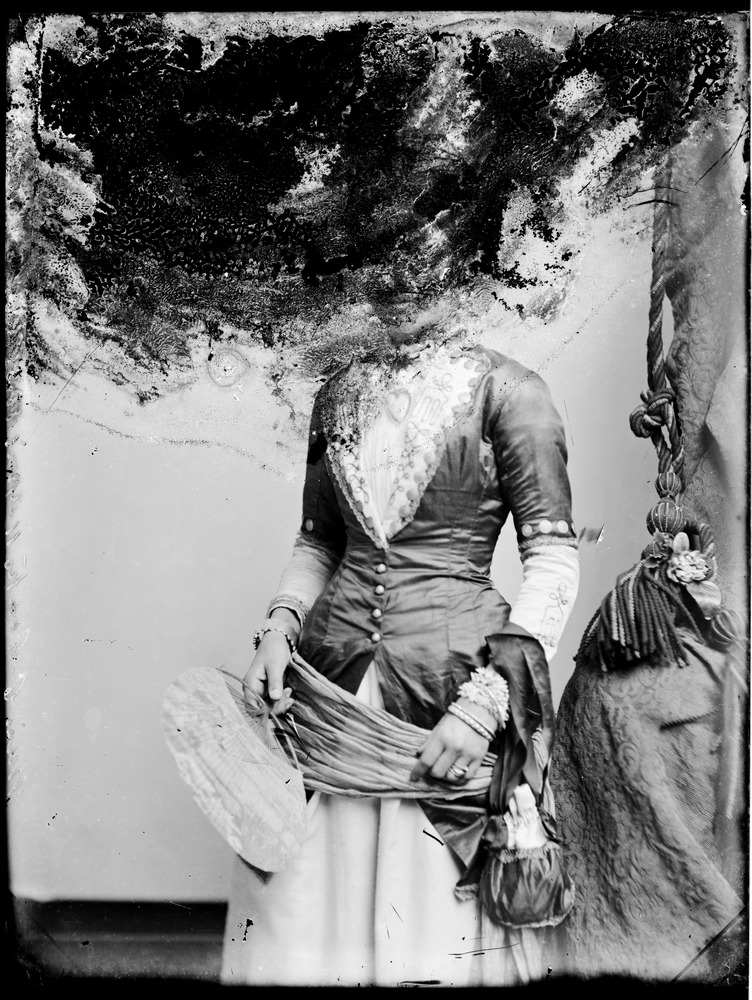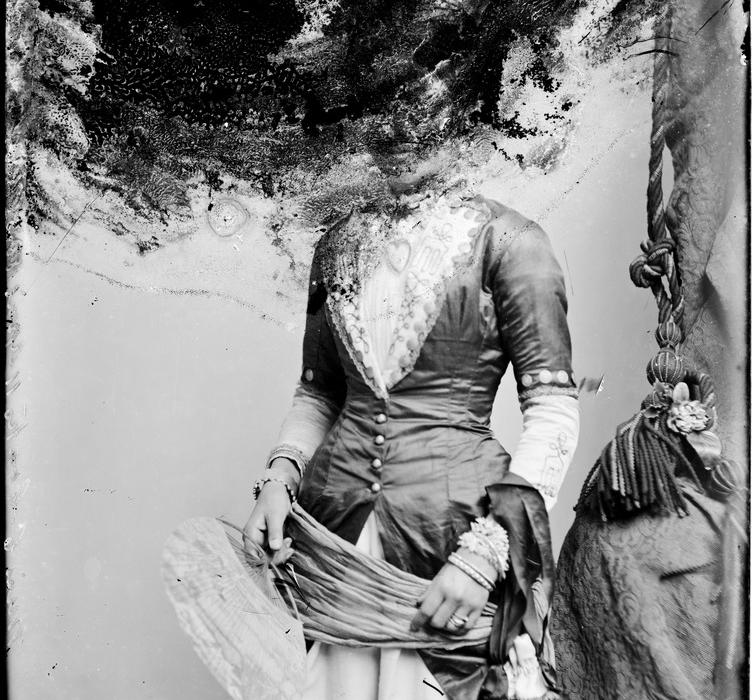Nothing screamed ‘scandal’ like an article in Truth – a sensational and melodramatic tabloid which specialised in the reporting of scandalous events around Australia.
In 1916 desertion, perceived adultery and eventual divorce was just the story to be featured in the Melbourne publication of Truth, particularly if there were titbits of disgrace for either or both parties.
In May 1916, after almost 15 years of marriage Thomas Spry petitioned for divorce from his wife Everes, fifteen years his junior. The couple and their three children had moved between farming pursuits in New South Wales to Victoria and back again. After nearly twelve years of marriage, Thomas declared that Everes had ‘willfully deserted’ him and no longer performed her wifely duties out of, and particularly inside the bedroom. This, of course, was the type of scandal that Truth just loved to report about. Snippets of the trial appeared in the newspaper, reporting that Thomas had continually and lovingly provided for his wife before she, on several occasions ‘took ill’ and was hospitalised at Royal Park for a nervous breakdown (on more than one occasion). What Thomas failed to mention in his written divorce petition before the courts, but was thoroughly reported about in the newspaper was the fact that his wife had discovered a prescription which was to assist with ‘certain diseases’, he claims, he was afflicted with, prior to their marriage. Everes finding the prescription, which Thomas claimed had been written almost 30 years earlier – and which he had for reasons unknown kept – asked her doctor what it was for. Yet, Thomas didn’t believe that it was an issues, he passed the blame to his estranged wife and stated that, ‘the only conclusion I can come to is that when the money was done love was too’.

Everes did not fight Thomas’ claim, she did not write to the court of her response to the claims of desertion nor appeared in person to have her voice heard. Eliza, her mother, did appear and claimed that all the blame could not be attributed to her daughter and her mental state. Eliza believed that Thomas was ‘rather sweet on a servant girl’ and had partly attributed Everes’ reasons for not sleeping with her husband because ‘his breath was so strong with rum and tobacco that she could not sleep with him’.
Briefly, Thomas was questioned about whether his intent to divorce was because he had the desire to marry again. He denied that he had neither a prospective new wife nor the inclination to find someone. That same year – within 6 months – Thomas did indeed marry again.
Do you want us to uncover the scandal in your family tree, or get to the bottom of a family mystery? Contact us today to see how we can help you.
Phoebe

Sources:
Truth (Melbourne), 13 May 1916, p. 3.
PROV, VPRS 283/P0, Unit 240, Item 1916/15.

